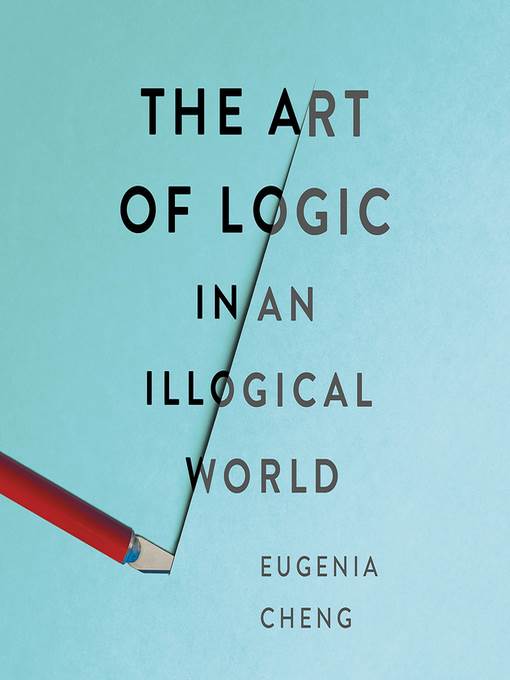
The Art of Logic in an Illogical World
کتاب های مرتبط
- اطلاعات
- نقد و بررسی
- دیدگاه کاربران
نقد و بررسی

June 11, 2018
Mathematician Cheng (Beyond Infinity) considers how the principles of math can be used to help define one’s personal ethos and bridge the gap between differing points of view. She explores real-life ethical and philosophical problems, like white privilege, “arbitrary standards” in education, and racially-motivated police brutality, through the lens of data-driven logical precepts and mathematical techniques. These include proofs, Venn diagrams, truth tables, flow charts, fractal trees, and more. Using these methods, Cheng argues, can help people avoid mistakes in logical thinking and recognize fallacies. However, she posits that there is more to having a constructive conversation than logic alone, stating that “we should look to engaging people’s emotions to convince them of logical arguments.” Discussing thorny issues, she says, requires a sense of “nuance,” rather than the “false promise of black and white clarity,” and a more intuitive and feelings-based approach. Cheng is largely successful in making mathematical principles and formulas accessible to a lay audience, though the occasional statement—such as “it is the contrapositive of the converse so is equivalent to the converse”—will be challenging for those unfamiliar with math jargon. Cheng’s suggestion to combine the persuasive powers of logic with emotional appeal to find common ground is original and pragmatic, particularly in these divisive times. Agent: George Lucas, InkWell Management.

July 15, 2018
Logic helps people build bridges to understanding. But what if people don't want those bridges? Aha, says this entertaining guide: There's a meta-problem for you....In our current landscape of the postfactual, the loudest bellower is king. Enter Cheng (Beyond Infinity: An Expedition to the Outer Limits of Mathematics, 2017, etc.), the scientist in residence at the Art Institute of Chicago--now there's a good idea--and possessor of a formidable, mathematically inclined mind. Though the author aims to teach math, science, and formal logic as she progresses, she really means to help readers construct better arguments, which may turn out to be a world-saving proposition. There is a built-in advantage to using logic, she writes, in that it provides a framework for discovering what is true, and "one of the main reasons to have a clear framework for accessing truth is to be able to agree about things." The notion of agreement will come into play late in the book, when Cheng analyzes the best kinds of arguments, which allow us to understand another person's point of view. Until that point, there are theorems, axioms, and proofs to go through, for mathematically based logic hinges on such things as the union of sets (the place where two circles meet in a Venn diagram) and the proper application of analogy to any particular problem. The author isn't exactly playful, but she pitches a few paradoxes as she moves along--one of them being the fact that, since logic doesn't actually correspond to what we know as the real world, we have to "forget the pesky details that prevent things from behaving logically." In other words, we have to think abstractly, which poses plenty of other challenges.Though full of pauses, second glances, and head-scratches, this is a very welcome primer in logical thinking.
COPYRIGHT(2018) Kirkus Reviews, ALL RIGHTS RESERVED.

November 1, 2018
At the heart of mathematics is the proof{amp}mdash;a logical argument from an agreed-upon set of axioms to reach some conclusion. In the real world few things are that simple. In her latest work, mathematician Cheng (Beyond Infinity), using current areas of disagreement from political to social, explains how logical arguments should be constructed and why they frequently fail. These include some cases in which a statement does not necessarily follow logically from the one before but still manages to fail in a different way. For example, people may have similar yet different or unspoken sets of basic assumptions. Other disagreements may arise from unclear generalizations, false equivalencies, or faulty analogies. In clear and easy-to-read prose, Cheng walks readers through simple logic, the limitations of the law of the excluded middle, handling gray areas, and even a little about logical paradoxes. VERDICT This well-written, accessible book offers insight into other people's positions and may even help us find the flaws in our own reasoning.{amp}mdash;Harold D. Shane, Mathematics Emeritus, Baruch Coll. Lib., CUNY
Copyright 2018 Library Journal, LLC Used with permission.

























دیدگاه کاربران